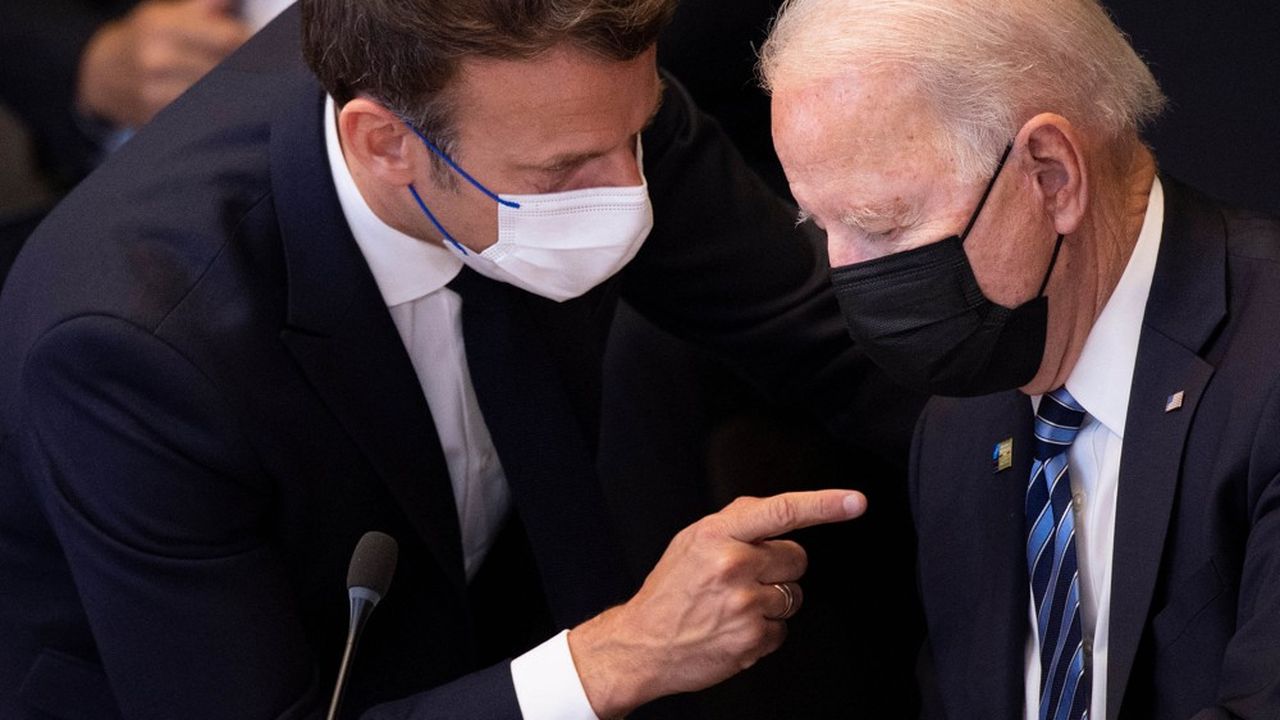Posted on Sep 19, 2021 3:48 PM
Jean-Yves le Drian spoke of a serious crisis of confidence with the United States and, without precedent, recalled our ambassador in Washington. Is this crisis deeper than the previous ones?
It seems to me that this is only the last episode of the Franco-American disputes that we are used to. We can go back to the 2003 crisis, but this crisis is more similar to that of 2013 (the one in Syria, editor’s note) because the British are again in the equation. At the time, I was very struck by the fact that the Obama administration preferred to give up an action, which it had nevertheless promised to take, if the ally at its side was France rather than the United Kingdom. .It is a further manifestation of the lack of confidence of the Americans in our regard, despite the great declarations affirming that France is their “first ally”. Hence the satisfaction of Boris Johnson, who sees this as a success for his “Global Britain” strategy. As such, the French were absolutely right not to recall their ambassador to London to underline our indifference to the British game.
But did France have a geostrategic interest – through its maritime territory and its military forces – in the Indo-Pacific area?
This is all the more true as it took part last June in an unprecedented naval exercise with the United States, Japan and Australia! There is unanimity in the Biden administration right now, everyone is thinking the same thing at the same time: the enemy is China, and everything has to be reorganized around that. This manifests itself in the rise of the Indo-Pacific concept, with two strong ideas: a ‘new cold war’ against China and the rivalry of the great powers. What perhaps explains why France is bluntly sidelined is that there are silos within the defense and the State Department, and that it is the Asia-Pacific directorates that lead the way. dance… without necessarily taking into account those who know Europe. And what they think is the smartest thing is to bet everything on Australia.
Laurence Nardon, Ifri North America Manager.
The more nuanced policy of France and Europe vis-à-vis China is also one of the reasons for our exclusion?
It’s pretty bad faith on their part. We can see that the investment agreement has been finalized and that the European Union has recently taken rather harsh measures against China. We are in a lose-lose situation on this issue. The Americans feel that Europe is of no use to them in their strategic reorientation, yet they demand full alignment from us. So whether we align ourselves or not, we are useless. It is all the more heartbreaking since we had hoped for something else from the new Biden administration, Democrat and post-Trump, and its Francophile Secretary of State, Anthony Blinken. However, it is reviving unilateralist practices, all of this is really deplorable.
Will France be able to find leverage against Washington and at the same time push the concept of strategic autonomy?
Can we be compensated for this affront? There is of course the transatlantic trade, and the lifting of taxes still in force on steel and aluminum. The negotiations within the OECD on the taxation of multinationals may perhaps get tougher on Gafa. There is also this painful issue of travel visas: it has been two years since we can go to the United States. But the real subject on which we could demand a change of attitude from the Americans is that of European strategic autonomy. Can they continue to curb any hint of progress on this issue, while demonstrating that Europe is no longer on their strategic radar?
–


